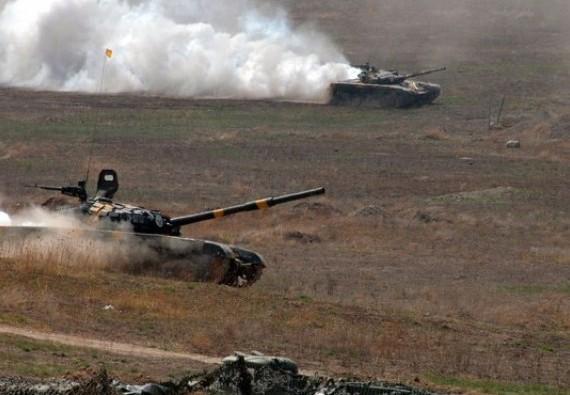Armenia vainly looks into past

By Abdul Kerimkhanov
More than three years ago, the unfinished war between Armenia and Azerbaijan over Nagorno-Karabakh, which began in the wake of the collapse of the Soviet Union nearly three decades ago, broke out into its most heated period since the ceasefire agreement signed in 1994. Yerevan suffered heavy losses in these battles. Azerbaijan regained control over some of its occupied territories during the ‘four-day war’.
Three years after the war, Armenia sets up a parliamentary commission to investigate the April clashes. Its main goal is to establish what happened in those days, what were the main causes of the Armenian army losses, and who were the culprits of omissions in military units.
Armenian media reports that the commission intends to invite participants of the battles for questioning. Both ordinary soldiers and officers who were at the military position where the main military operations took place, will be called to the parliament.
The former deputy heads of the operational management department of the Armenian Defense Ministry, who are still working for the government, have already been called for questioning. Reportedly, former Armenian President Serzh Sargsyan may also be called for questioning.
Whatever the outcome of the investigation is, neither the complete replacement of the entire officer personnel in the Armenian army, nor the numerous loans for armament that they are receiving will be able to bridge the huge gap between the Azerbaijani and Armenian armed forces. Therefore, the liberation of the occupied Azerbaijani territories is just a matter of time.
During the April clashes, Azerbaijan retook control over about 2,000 hectares of its land, including two strategic hills out of 13 strategically important heights located in the occupied territories of Azerbaijan, which include the Nagorno-Karabakh region and seven surrounding districts. The April clashes showed that Azerbaijan has much more military power than Armenia and that Baku is perfectly capable of regaining control over its occupied territories.
The war shattered the belief among the Armenian public that their army is ‘invincible’ and ‘reliable’.
Armenia’s setting up of the parliamentary commission shows that instead of recognizing the weakness of their army and taking steps to improve it, the Armenian authorities are vainly looking into the past.
As it turned out, during the April clashes, many Armenian soldiers were dying not having even bullets, and many Armenian tanks could not go into battle. All this testifies to the complete incapacity of the Armenian army.
Moreover, the relations between Armenian military personnel, between commanders and subordinates in the Armenian armed forces, are often based on hazing. That is why it is not surprising that on August 12, fleeing from bullying and inhuman treatment by fellow soldiers, the Armenian soldier Araik Ghazaryan defected to the Azerbaijani side. Armenian experts themselves say that if the situation in the Armenian armed forces does not change, the number of deserters in Armenia will only grow.
---
Abdul Kerimkhanov is AzerNews’ staff journalist, follow him on Twitter: @AbdulKerim94
Follow us on Twitter @AzerNewsAz
Here we are to serve you with news right now. It does not cost much, but worth your attention.
Choose to support open, independent, quality journalism and subscribe on a monthly basis.
By subscribing to our online newspaper, you can have full digital access to all news, analysis, and much more.
You can also follow AzerNEWS on Twitter @AzerNewsAz or Facebook @AzerNewsNewspaper
Thank you!
